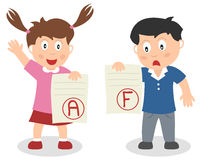Choose Friends Carefully

As in our daily physical interactions, we must also choose friends carefully in our online social life. Our parents always taught us to choose our friends wisely for good reasons and cyber friendship risks are not any different. As digital socialization becomes more embedded into our everyday life, we have to apply the same principles to protect ourselves in the cyberspace.
Most of us nowadays use social networks to interact with online friends and professional contacts. In most cases, we have hopefully met in person some of these digital connections however, in other cases, we may only know them by their cyberspace name and profile information which by the way may be all made up. I used Facebook briefly a while back but I soon deactivated my account when I saw the amount of personal information that was being circulated outside of my control. I noticed that privacy around the things that I communicated to my online friends did not fully exist and that I had lack of complete control over what others did with the information that I shared with them including my friends and Facebook. For example, they would broadcast my travel plans on the Internet or post pictures with my name tag.
Although I no longer use Facebook myself, we all know many people who use it to share information with others often located on the other side of the planet. Social networks now distribute news faster than any other media and examples include Twitter and Facebook which have the power to leak information out of the countries where freedom of information does not exist and coordinate spring uprisings to make regime changes. We all know that social networks are full of personal information that thieves are tracking which may include the times or days that you are not home or an expected FedEx or UPS package delivery day. There are recent reports of thieves tracking and stealing UPS delivery packages which include replacement American Express credit cards and use them to make unauthorized purchases. How thieves are able to activate the new credit cards and use them to make purchases is to be discussed in another article.
Instead of Facebook, I personally use LinkedIn as a way to network professionally but as professionals, we normally keep our personal information sharing to a minimum. I suspect that as people get older and become less active professionally, they will also use and participate in professional networks less.
I have raised issues about managing LinkedIn connections in the past especially with the way people collect "connections". From my own experience, more than half the connections are often worthless when we need them. In fact, I will argue that some connections may even be bad for our professional life as they might reflect negatively on our own image or provide perceived negative information to others when they are contacted for feedback because the assumption is that if they are in our approved contact lists, then they must have valuable and credible information about us which is far from the truth. I personally started to reduce the number of my LinkedIn connections instead of adding to my connections. I would from time to time go through my connections and remove the ones which I believe are worthless and can actually do more harm than offer help and support. I often see some people bragging about their 500+ LinkedIn connections but I normally dislike receiving generic LinkedIn requests to connect especially if I never heard of the connection requestor. Why would any person send a connection invite without personalizing their message unless they know us? If the generic connection requestors do not choose friends carefully, what does this say about their personalities whether they are careless, lazy or have a complete lack of respect for the people they want to connect with. My conclusion is that they don’t deserve our connections if they value their time more than they value our time for approving their request and connecting with them. This tells a lot about their future contributions to our professional life.
In summary, choose friends carefully whether online or in person. Friends who do not add value to our life and can care less about our well being do not deserve our friendship and in fact because of the careless nature of their personality, they might even place us at risk by sharing excessive information about our activities and other personal information.
Return to home page from "choose friends carefully".








